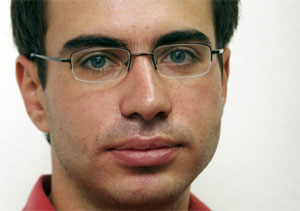Sofia played host to an international conference “Children and the media. A guidebook to ethical reporting”, organized by the Association of European Journalists-Bulgaria and the United Nations International Children’s Fund (UNICEF).
And the reason why such a conference was needed are the disturbing data made public by the National Statistical Institute - that 4 in 10 children in Bulgaria live in severe material deprivation and have problems that journalists in this country either ignore or blow out of proportion for the sake of better rating or more visits to their media outlets. A lack of culture and humane approach to affliction or loss make journalists unwelcome, frequently making them the target of the well-deserved anger of the victims in cases when they are out to dig up sensation where there is none. In an effort to be the first to bring on-the-spot coverage, journalists often make use of children, asking them questions that are highly inappropriate, even inadmissible, pressuring them into giving an answer, because airtime is precious. Questions like “how do you feel” after losing a loved one, or “what happened”, or “did you notice anything before the flood water hit” – asked after the flooding which destroyed people’s homes just go to show that the individual fate and the consequences these questions have mean absolutely nothing to the person holding the microphone. This practice which makes victims out of people stricken by calamity, people who are different or who are sick has to stop, and stop now, all participants in the conference in Sofia agreed.
To assist journalists a guidebook to ethical reporting involving children was presented.
 “It aims to offer guidance and support to people working in the media and to give a summary of the most important written rules and questions we all ask ourselves,” says Ivan Radev from the Association of European Journalists-Bulgaria. “We know well that journalists do their job in a highly dynamic environment, in which events unfold very quickly which means their reaction has to be swift. What we want to see, and have been making efforts to encourage, is to make children more visible, not as victims, but as full-fledged members of society who have achieved something that is good.
“It aims to offer guidance and support to people working in the media and to give a summary of the most important written rules and questions we all ask ourselves,” says Ivan Radev from the Association of European Journalists-Bulgaria. “We know well that journalists do their job in a highly dynamic environment, in which events unfold very quickly which means their reaction has to be swift. What we want to see, and have been making efforts to encourage, is to make children more visible, not as victims, but as full-fledged members of society who have achieved something that is good.
We divided the information in the guidebook up into chapters, dealing with children as such, but also chapters concerning specialized institutions or, for instance, children in conflict with the law. Every one of these groups has its own peculiarities and journalists should know what they are and be able to take them into consideration. They should be able to step into the shoes of the person they are interviewing and always keep in mind the effect their piece of reporting will have on them and their loved ones.”
Ivan Radev added that besides the guidebook, the Association has also been working on training for journalists in this sphere that is planned for the beginning of May.
The special guests at the forum included two journalists from Great Britain and USA, producers of films that brought about far-reaching changes in the treatment of children and in juvenile justice, as they focus on highly sensitive problems – children in prison and school violence. For example, when the film by Connie Fossie about the detention of children on insignificant charges was screened, President Barack Obama took steps to eradicate this practice.
English version: Milena Daynova
A team of 12 Bulgarian 11th grade students, led by Elitsa Pavlova, won first place among participants from around the world in the prestigious Live in a Healthy Space Design Competition organized by the National Space Society (NSS)..
On the occasion of the upcoming National Holiday - March 3 and 147 years since the Liberation of Bulgaria from Ottoman rule, the Regional Library in the city of Yambol is conducting the campaign "Let's Read for Bulgaria". The goal is..
The Aviation Training Center at Sofia Airport has received accreditation from the Airports Council International (ACI) and joins the elite group of 21 training hubs, including those at leading European airports such as Munich,..
Exactly a month after the Bulgarian National Radio solemnly celebrated its 90th anniversary, history continues its dialogue with us, its authors. With a..

+359 2 9336 661
